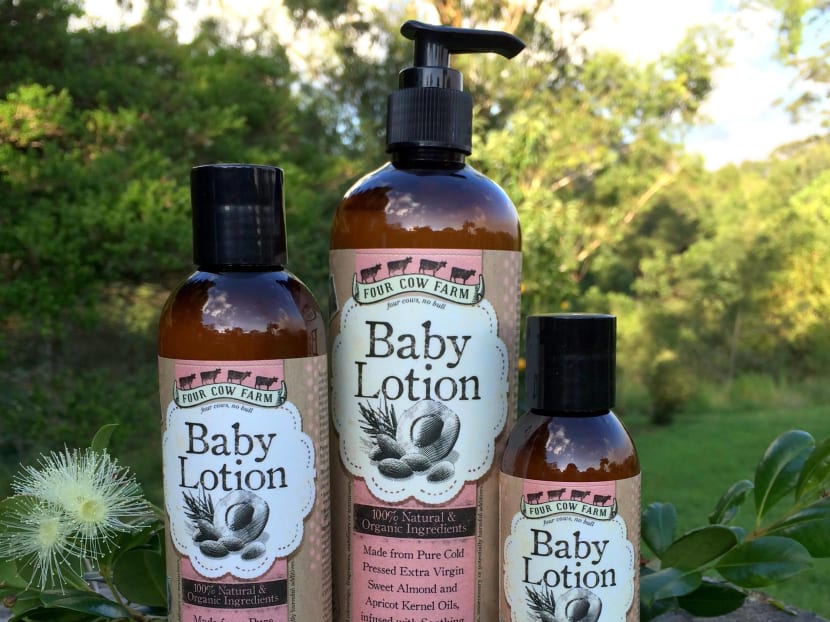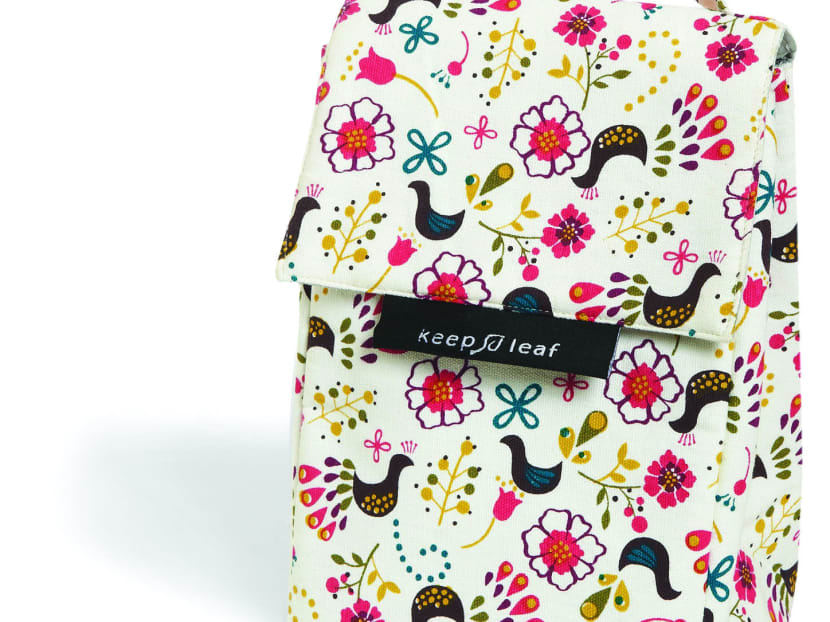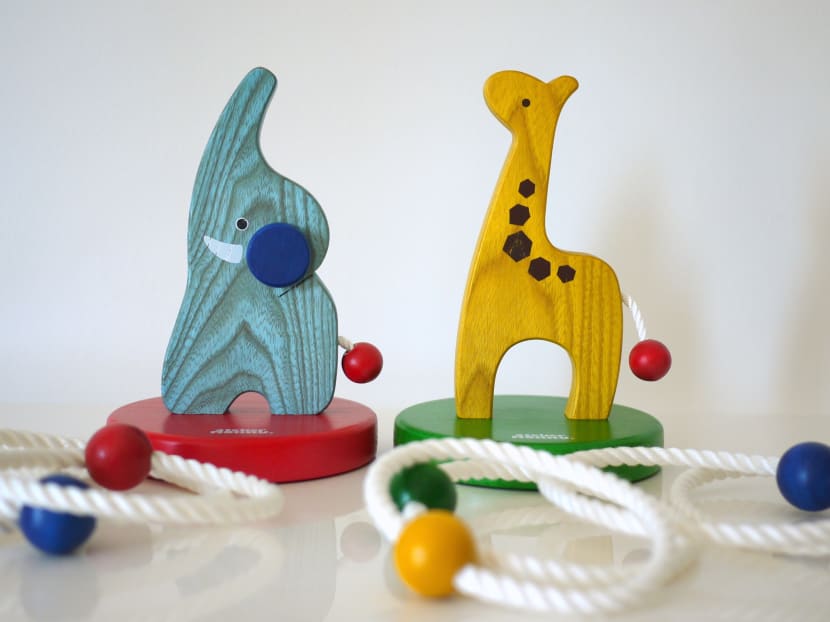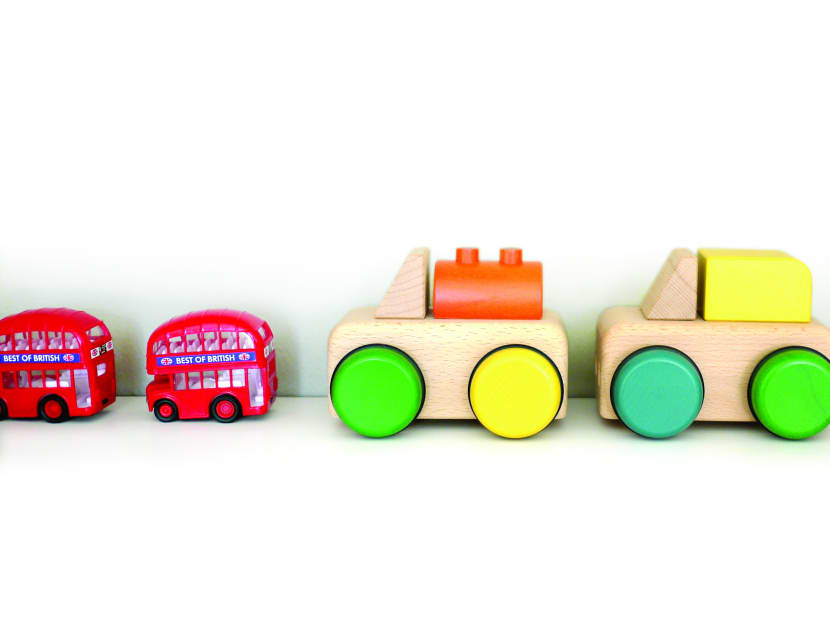More kids-centric businesses targeting young eco-conscious parents
The cost of raising children in Singapore is an issue that never fails to garner heated public debate. An article in this newspaper in May this year estimates that the total outlay of raising a child from birth till 20 years of age ranges between S$200,000 and a cool S$1 million. The exact associated costs, of course, are impossible to calculate as they vary widely depending on the various routes and options that parents choose in terms of education and childcare as well as the stuff that they purchase for their children such as toys, clothes and food.




The cost of raising children in Singapore is an issue that never fails to garner heated public debate. An article in this newspaper in May this year estimates that the total outlay of raising a child from birth till 20 years of age ranges between S$200,000 and a cool S$1 million. The exact associated costs, of course, are impossible to calculate as they vary widely depending on the various routes and options that parents choose in terms of education and childcare as well as the stuff that they purchase for their children such as toys, clothes and food.
Needless to say, parents are traditionally price-conscious consumers. Yet, with more millennials—a vastly more eco-conscious generation than their yuppie parents—becoming young parents, there is a quietly burgeoning number of baby-and-kids-centric eco-businesses emerging on the local entrepreneurial scene.
Given that environmentally friendly products in general tend to be on the pricier end of the spectrum, today’s young parents seem to be eschewing lower price tags in favour of embracing a greener lifestyle; to make their purchase count more meaningfully.
Militza Maury, the founder of eco-lifestyle website Little Green Dot (littlegreendot.com) says that the eco-conscious movement here has grown in leaps and bounds over the past five years.
“Just last month, I spoke at Green Living, a dedicated eco-lifestyle event that took up a whole floor of the Marina Bay Sands’ Convention Centre. In 2011, when I began Little Green Dot, this would have been unimaginable. I think that we went through a period where Singapore grew and (became) modernised very quickly, and everybody wanted the best and the newest things. But now people are taking a step back and looking at their choices with fresh eyes.”
GREEN IN THE CITY
She was inspired to start the website while she was pregnant with her second daughter and was looking for ways to lead a greener lifestyle in our urban, fast-paced cityscape. On Little Green Dot, even the busiest urban parents can learn how to create homemade bath teas and eco-craft boxes for their little ones.
“I see so many young parents becoming aware of the products that they use around their family—conventional cleaning and skincare products filled with chemicals. They’re looking for healthier options for their children and themselves. But at the same time, I see grandparents becoming more interested in reconnecting with their heritage and going back to a simpler, greener lifestyle. I believe that this is a national shift in awareness and it’s going to continue to grow,” observed Maury.
This growing interest in environmentally friendly options in the baby and kids’ retail market is evidenced in the burgeoning number of eco-retailers. Most of them are based entirely online.
Four entrepreneurs of kids-focused eco-retail sites we spoke with were inspired by their own kids to start their businesses, and their offerings cover a gamut of categories and price points. Tinydipity (www.tinydipity.com) founder Laurel Tan’s search for the purest clothes and babycare products for her firstborn son Kyle’s ultra-sensitive skin put her on the entrepreneurial path six years ago. Tinydipity serves up eco-conscious finds with a dose of minimalist Scandivanian chic, including own-brand snack and wet bags, and kids clothes in organic cotton.
The Little Bao (www.thelittlebao.com) is named after the nickname of founder Charisse Zee’s two-year-old son, and focuses on eco-friendly baby essentials such as 100 per cent organic soft toys from Wooly Organic and bioplastic teether and toys from Bioserie.
The indoor cycling instructor and fitness enthusiast embarked on her eco-conscious journey in a bid to overcome her sensitive skin issues. “I wanted to use products to be healthy, organic and ethically sourced, especially now that I’m a mum. I used to live in the US and found that you can get (such products) very easily, particularly on Amazon and other websites. When I first moved here, I didn’t have any help, and you can’t always leave the house to go to the shops as a busy mother. With The Little Bao, I just wanted to put the items out there to share with other mothers,” explained Zee.
Two friends, who are also mothers to young children, found themselves being mules for their friends, buying and transporting eco-friendly and stylish toys on their travels, and decided to start a business together. ePloof! (www.eploof.com) founders, Reiko Hirao and Elizabeth Chan, curate premium wooden educational toys and adorable kids’ decor from artisanal labels, such as Japanese brands Atelier Mokku and Woody Puddle, for their site.
ECO FOR THE FAMILY
Avoiding toxins and unnecessary chemicals is still a top priority for most parents who want the best for their newborns and little ones, attests Evon Chee, manager of Gonat LLP, the local distributor for Four Cow Farm, an Australian baby and skincare line made of 100 per cent food-grade ingredients. “Parents today have more resources to do research and as their research leads to the discovery that harmful and toxic chemicals are present in the daily items that we all come into contact with, or even consume, they are able to make choices to raise their children in a more wholesome and natural way as every parent wants what’s best for his or her baby,” she said.
While the immediate concern was for the health and well-being of their children, the zeal for spreading the green message has spread from just baby-related merchandise to practical everyday items for many of these eco-preneurs.
Neis Haus (www.neishaus.com.sg) founder Jacqueline Kitan may have started her business during her maternity leave, following the birth of her younger son two years ago, but her aim is to offer eco-friendly and toxin-free products that can be used by the whole family. Some of the unique and practical products that retail exclusively on Neis Haus include Apiwraps (a brand of reusable organic cotton beeswax food wraps that can replace plastic film wraps), printed cotton, reusable snack and lunch bags from Keep Leaf and bamboo toothbrushes from The Environmental Toothbrush.
“As a mum, I came across these great eco-friendly and toxin-free products that could be used by the whole family, but very few were available locally,” said Kitan. Neis Haus has seen steady, organic growth since its inception. “I’m happy with the progress so far, and the increasing eco-awareness we see when people discover our products.”
Unsurprisingly, these eco-preneurs feel strongly about the need to embrace the eco-lifestyle not just for the kids, but for the greater good. “We live in an amazing city in an amazing world. But the problems that we’re facing — from water and energy shortages to climate change — won’t get fixed overnight. So it’s important to put effort into raising caring kids. We need to create a generation of people with the skills and the determination to solve the big problems that the world faces,” said Maury. “Going green is also being conscious of the choices that we make every day and taking small steps to make things better.”
Jo James, 39-year-old mother of two girls, concurs. She and her family practise recycling, reducing unnecessary toy and clothes purchases and use a homemade household cleanser made of baking soda and vinegar. “My reason is simple: My time on earth is fast diminishing and my kids will inherit whatever habits or mess I make of the planet, so I’m trying to instil in them a sense of responsibility first to the world they live in — and make sure I’m actually contributing to as decent an environment as I can leave them.”





